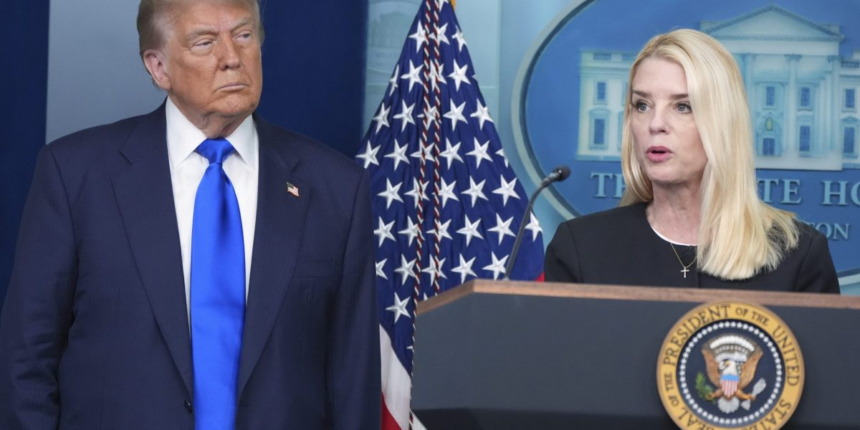But even if those records become public, it’s far from certain they will appease critics enraged over the administration’s unfulfilled promises of full transparency about evidence against the wealthy financier. Meanwhile, the administration remains dogged by questions about its refusal to release other records in its possession after stoking conspiracy theories and pledging to uncover government secrets of the “deep state.”
Here’s a look at the ongoing Epstein files controversy and what may happen next:
Shortly after the story was published, Trump said he had directed Attorney General Pam Bondi to “produce any and all pertinent Grand Jury testimony, subject to Court approval.”
“This SCAM, perpetuated by the Democrats, should end, right now!” the president wrote on social media.
Bondi then announced that the Justice Department would move Friday to ask the court to unseal the grand jury transcripts. Deputy Attorney General Todd Blanche filed the motion urging the court to release the transcripts.
Grand jury transcripts — which could show the testimony of witnesses and other evidence presented by prosecutors — are rarely released by courts, unless they need to be disclosed in connection with a judicial proceeding. In fact, grand jury secrecy is such a sacrosanct principle under the law that government officials who improperly disclose testimony are subject to prosecution. Witnesses are not bound by those rules.
Even with the Justice Department endorsement, it could take weeks or months of legal wrangling to decide what can be released and how to protect witnesses and other sensitive victim information.
And it’s unlikely the transcripts would shed any light on a major fascination of conspiracy theorists obsessed with Epstein’s case: the financier’s connections to other powerful figures whom some believe were involved in Epstein’s sex trafficking scheme.
The Justice Department’s decision to seek grand jury transcripts gives the administration a reason to point to the courts to explain why more material hasn’t yet been released. But the uproar over the Epstein files was never about the grand jury transcripts — it was about the thousands of other pages in the government’s possession that the administration now says it won’t release.
The Justice Department has yet to fully explain why none of that material could be released. It noted in its memo earlier this month that much of the material was placed under seal by a court to protect victims and “only a fraction” of it “would have been aired publicly had Epstein gone to trial.”
“The House Republicans are for transparency, and they’re looking for a way to say that they agree with the White House,” House Speaker Mike Johnson said Thursday. “We agree with the president. Everything he said about that, all the credible evidence should come out.”
Democrats, with the support of nine Republicans, have advanced their own legislation that would require the Justice Department to release more information about the case.









